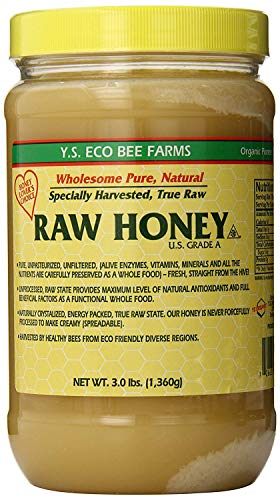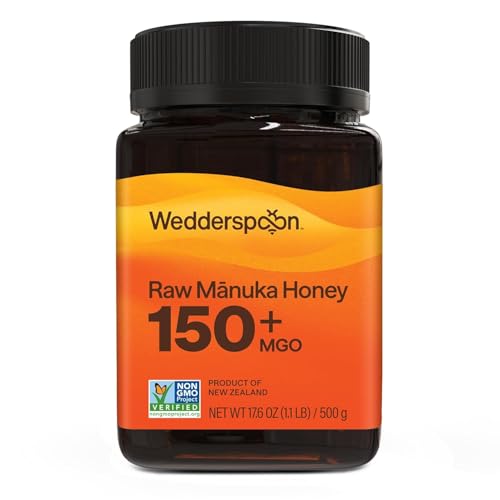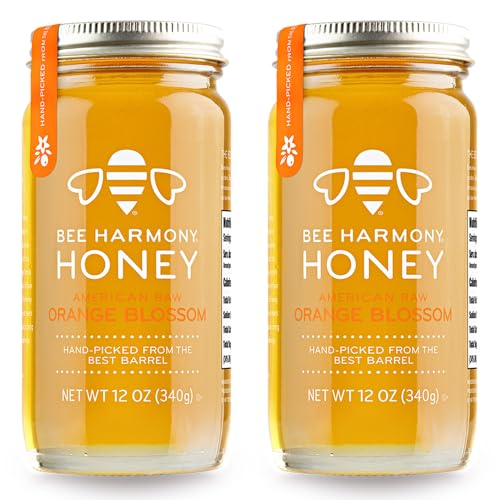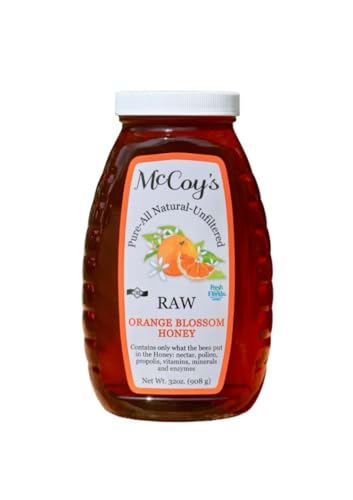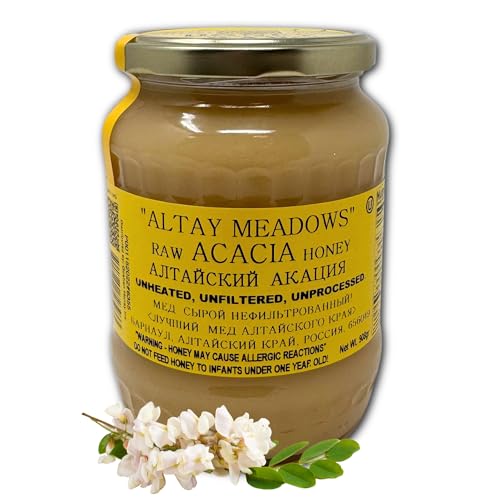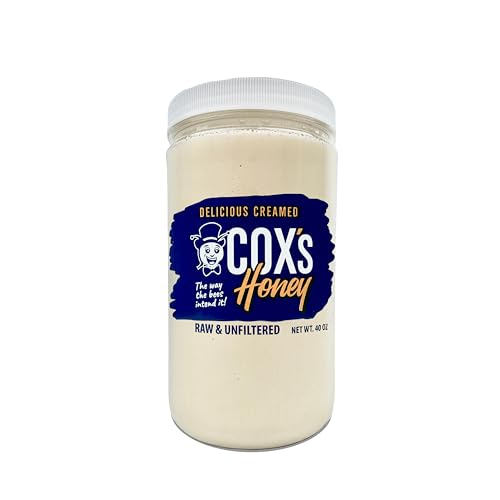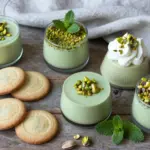When we think about the perfect cup of tea, we often focus on the leaves themselves – but the sweetener can make or break the entire experience. Honey transforms ordinary tea into liquid gold, adding natural sweetness while delivering unique flavors that complement different tea varieties.
We’ve all grabbed whatever honey’s available in our pantry, but choosing the right honey for your tea can elevate your daily ritual from mundane to magical. Different honey varieties bring distinct flavor profiles, from delicate floral notes to bold, robust tastes that can enhance everything from morning Earl Grey to evening chamomile.
The best part? Quality honey doesn’t just taste incredible – it packs impressive health benefits that refined sugar simply can’t match. From raw wildflower to premium Manuka, we’ll guide you through the top honey varieties that’ll transform your tea-drinking experience forever.
Raw Unfiltered Honey: The Gold Standard for Tea Lovers
Raw unfiltered honey represents the purest form of this natural sweetener, maintaining all its original enzymes, antioxidants, and complex flavor compounds that complement tea perfectly.
Why Raw Honey Preserves Maximum Flavor
Raw honey undergoes minimal processing, which means it retains the full spectrum of floral notes and aromatic compounds that commercial honey loses during pasteurization. We find that raw varieties deliver nuanced flavors that can range from delicate acacia’s light sweetness to buckwheat’s robust molasses-like depth.
Crystallization in raw honey actually indicates quality rather than deterioration. Natural crystals form when glucose separates from the honey’s water content, creating a creamy texture that dissolves beautifully in hot tea. Raw honey’s complex sugar profile includes fructose, glucose, and trace minerals that create layers of sweetness instead of the one-dimensional taste of processed alternatives.
Temperature sensitivity makes raw honey particularly valuable for tea preparation. Heat above 140°F destroys beneficial enzymes, so we recommend adding raw honey after your tea has cooled slightly. This preservation method maintains the honey’s therapeutic properties while still providing optimal sweetening power.
Health Benefits That Complement Your Tea Ritual
Raw unfiltered honey contains powerful antioxidants like flavonoids and phenolic acids that work synergistically with tea’s natural compounds. Combined with green tea’s catechins or black tea’s theaflavins, raw honey creates an antioxidant powerhouse that supports immune function and reduces inflammation.
Enzymes in raw honey aid digestion and can soothe throat irritation when combined with herbal teas like chamomile or ginger. We’ve found that raw honey’s antimicrobial properties from compounds like hydrogen peroxide and bee defensin-1 make it particularly effective for wellness-focused tea blends.
Prebiotics naturally occurring in raw honey feed beneficial gut bacteria, improving your body’s ability to absorb nutrients from both the honey and tea. Local raw honey may also help with seasonal allergies by exposing you to small amounts of local pollen, though this benefit requires consistent consumption over time.
Best Raw Honey Brands for Tea Enthusiasts
| Brand | Honey Type | Flavor Profile | Best Tea Pairing |
|---|---|---|---|
| Nature Nate’s | Raw Unfiltered | Mild, floral | Earl Grey, Chamomile |
| Really Raw Honey | Totally Raw | Complex, robust | Black teas, Chai |
| YS Eco Bee Farms | Raw Wildflower | Rich, varied | Oolong, White tea |
| Wholesome | Raw Unfiltered | Clean, balanced | Green tea, Herbal blends |
Nature Nate’s delivers consistent quality with their 100% raw unfiltered honey that’s never heated or processed. Their wildflower variety offers subtle complexity that won’t overpower delicate tea flavors like white tea or light oolongs.
Really Raw Honey maintains its reputation through completely unprocessed honey that includes natural bee pollen and propolis particles. We recommend this brand for robust tea drinkers who enjoy bold flavors in their Earl Grey or English Breakfast blends.
YS Eco Bee Farms sources from diverse floral regions, creating seasonal variations that make each jar unique. Their raw wildflower honey pairs exceptionally well with oolong teas, where the honey’s complexity matches the tea’s nuanced flavor profile.
Manuka Honey: Premium Healing Properties in Every Cup

Manuka honey stands apart from other varieties with its scientifically proven therapeutic benefits and distinctive earthy flavor profile. We’ve found this premium honey transforms ordinary tea into a wellness ritual that supports both taste and health.
Understanding Manuka’s Unique Antibacterial Qualities
Methylglyoxal (MGO) sets Manuka honey apart from all other honey varieties, creating its powerful antibacterial properties. This naturally occurring compound forms when dihydroxyacetone in Manuka flower nectar converts during the honey-making process. We recommend looking for UMF (Unique Manuka Factor) certification, which guarantees the honey’s authenticity and potency levels.
Testing laboratories measure MGO concentrations to determine therapeutic strength, with higher numbers indicating more potent antibacterial activity. Authentic Manuka honey contains significantly higher MGO levels than regular honey varieties, making it particularly effective for supporting immune health. Quality control measures ensure that certified Manuka honey maintains consistent therapeutic properties throughout its shelf life.
How Manuka Honey Enhances Different Tea Types
Black tea creates the perfect foundation for Manuka honey’s robust, earthy notes that complement bold flavors without overpowering them. We’ve discovered that this pairing enhances both the tea’s natural tannins and the honey’s distinctive taste profile. Earl Grey and English Breakfast teas particularly benefit from Manuka’s complex flavor depth.
Herbal teas like chamomile gain soothing properties when combined with Manuka honey’s therapeutic qualities for evening relaxation. Ginger tea mixed with Manuka creates a powerful combination for digestive support and immune system strengthening. Even delicate green tea varieties can accommodate Manuka honey when used sparingly to add wellness benefits without masking subtle flavors.
Chai and pu-erh teas embrace Manuka’s earthiness, creating rich, satisfying beverages that deliver both comfort and health benefits.
Top Manuka Honey Brands Worth the Investment
Wedderspoon leads the premium Manuka honey market with consistently high UMF ratings and transparent sourcing practices from New Zealand. Their raw, unpasteurized varieties maintain maximum therapeutic potency while delivering authentic flavor profiles. We trust their rigorous testing standards that verify both MGO content and geographical origin.
Manuka Doctor provides laboratory-tested honey with clearly marked UMF ratings, ensuring customers receive genuine therapeutic benefits. Their quality control processes guarantee authenticity and potency, making them a reliable choice for tea enthusiasts seeking health benefits. Kiva rounds out our top recommendations with sustainably sourced Manuka honey that maintains excellent flavor and verified antibacterial properties.
Each brand offers different UMF rating options, allowing tea lovers to choose potency levels that match their wellness goals and taste preferences.
Wildflower Honey: Versatile Sweetness for Any Tea Blend

Moving beyond the premium options we’ve explored, wildflower honey offers an exceptional all-around choice that adapts beautifully to virtually any tea variety. This honey type delivers complex flavors that balance sweetness with subtle floral and herbal notes, making it our top recommendation for tea enthusiasts seeking versatility.
Seasonal Variations That Add Complexity
Wildflower honey’s flavor profile transforms throughout the year based on which blossoms bees visit during different seasons. Spring batches often feature lighter, more delicate notes from early flowering trees and plants. Summer varieties tend to develop richer, more robust flavors as bees access diverse meadow flowers and garden blooms.
Fall harvests typically produce the most complex wildflower honey, with deep amber colors and bold flavors from late-season wildflowers. These seasonal variations mean each jar offers unique subtleties that can highlight different aspects of your tea’s aroma and taste. We’ve found that this natural variation adds an element of discovery to your tea ritual, as each season’s honey brings new flavor dimensions to familiar teas.
Perfect Pairing with Herbal and Black Teas
Herbal teas benefit tremendously from wildflower honey’s adaptable sweetness, which enhances everything from delicate chamomile to robust herbal blends without overwhelming their natural profiles. The honey’s medium to strong flavor complements the varied intensity levels found in herbal teas, creating harmonious flavor combinations.
Black teas pair exceptionally well with wildflower honey because both share bold, complex characteristics. The honey’s richness matches the strength of oxidized black teas while highlighting their natural spicy or floral notes. Earl Grey particularly shines with wildflower honey, as the honey’s complexity complements the bergamot oil beautifully. English Breakfast and Assam teas also develop enhanced depth when sweetened with this versatile honey variety.
Most Trusted Wildflower Honey Producers
Quality wildflower honey typically comes from local beekeepers and specialty producers who maintain sustainable practices and minimal processing methods. We recommend seeking raw or minimally processed varieties to preserve the complex flavors and beneficial properties that make wildflower honey special.
Regional producers often offer the most authentic wildflower honey, as they source from local flower populations that create unique flavor profiles exact to their area. Many artisanal honey companies also specialize in wildflower varieties, ensuring consistent quality while maintaining the natural complexity that makes this honey type ideal for tea pairing. Look for producers who provide information about their harvesting seasons and local flower sources to ensure you’re getting genuine wildflower honey.
Clover Honey: Mild and Smooth for Delicate Teas

We often recommend clover honey as the perfect introduction to honey-sweetened teas, particularly for those new to this delightful combination. This popular variety offers a gentle approach to tea enhancement without overwhelming your palate.
Why Clover Honey Won’t Overpower Subtle Flavors
Clover honey’s light sweetness and subtle floral aroma make it the ideal companion for delicate tea varieties. Unlike stronger honey varieties that can dominate your cup, clover honey enhances natural tea flavors without masking their nuanced characteristics. Its neutral taste profile allows the subtle notes in your favorite teas to shine through clearly.
We’ve found that clover honey’s smooth texture dissolves easily in hot beverages, creating a seamless integration with your tea’s natural compounds. The honey’s mild floral undertones complement rather than compete with delicate vegetal notes found in premium teas. This gentle sweetness won’t interfere with the complex flavor layers that make certain teas so special.
Ideal Tea Combinations for Clover Honey
Green tea pairs exceptionally well with clover honey due to the honey’s mild and floral notes that enhance rather than overpower the tea’s delicate characteristics. We particularly enjoy this combination because clover honey preserves the vegetal qualities that make green tea so distinctive.
Herbal teas benefit significantly from clover honey’s neutral sweetness, especially when you want to maintain the tea’s original herbal profile. Chamomile tea becomes even more soothing when sweetened with clover honey’s gentle touch. White tea varieties also work beautifully with this mild honey, as both share similar delicate flavor profiles.
Earl Grey tea gains subtle complexity when paired with clover honey, which doesn’t compete with the bergamot’s citrusy notes. Oolong teas maintain their unique semi-fermented character when sweetened with this versatile honey variety.
Budget-Friendly Clover Honey Options
Clover honey offers excellent value compared to specialty varieties like Manuka or rare single-origin honeys, making it accessible for daily tea drinking. We appreciate that this affordability doesn’t compromise quality, as clover honey still provides natural enzymes and beneficial compounds.
Most grocery stores carry quality clover honey at reasonable prices, typically ranging from $3 to $8 per pound depending on the brand and processing method. Local farmers markets often feature fresh clover honey at competitive prices, supporting regional beekeepers while ensuring product freshness.
Store brands frequently offer clover honey that meets our standards for tea sweetening at budget-conscious prices. Buying in larger containers reduces the per-ounce cost significantly, making this honey variety even more economical for regular tea drinkers. Wholesale clubs provide bulk options that can last months for avid tea enthusiasts without breaking the budget.
Orange Blossom Honey: Citrusy Notes for Breakfast Teas

Orange blossom honey brings bright citrusy aromatics and delicate floral sweetness to your morning tea routine. This premium honey variety transforms ordinary breakfast teas into elevated experiences with its distinctive flavor profile.
Complementary Flavors That Enhance Morning Rituals
Delicate citrus undertones in orange blossom honey create perfect harmony with breakfast tea blends that feature fruity or citrus elements. Earl Grey becomes exceptionally complementary when paired with this honey, as the bergamot oil naturally amplifies the citrus characteristics found in both ingredients.
Morning cups benefit from orange blossom honey’s mild sweetness that uplifts tea flavors without creating overwhelming dominance. Floral notes within the honey provide refreshing balance that awakens your palate for the day ahead. Breakfast rituals gain sophistication when this aromatic honey dissolves seamlessly into hot beverages.
Best Tea Pairings for Orange Blossom Honey
Earl Grey Tea stands as our top recommendation because the bergamot and orange blossom honey create reinforcing citrus notes that enhance each other beautifully. Black tea varieties with robust profiles welcome the aromatic enhancement that orange blossom honey provides to every sip.
Rooibos blends work exceptionally well, particularly those featuring Madagascar vanilla or citrus hints that harmonize naturally with orange blossom honey’s floral and citrus character. Herbal teas with fruity undertones gain complexity when sweetened with this premium honey variety.
Traditional breakfast teas like English Breakfast create balanced morning beverages when combined with orange blossom honey’s gentle sweetness.
Premium Orange Blossom Honey Recommendations
Smiley Honey Orange Blossom Honey earns recognition for its light, floral taste that perfectly represents this honey variety’s characteristic profile. Florida and California producers offer exceptional quality due to their abundant citrus groves that provide ideal nectar sources.
Local honey producers from citrus growing regions consistently deliver fresh, authentic orange blossom honey with superior flavor profiles. International options from Spain and Mexico provide excellent alternatives with distinctive regional characteristics.
Raw, unfiltered varieties preserve maximum flavor intensity and natural health benefits that processed versions often lose during production. Pure orange blossom honey ensures you’re getting authentic citrus grove nectar without artificial additives or flavor enhancements.
Buckwheat Honey: Bold Flavor for Robust Tea Blends

Buckwheat honey brings an assertive, molasses-like richness that transforms strong tea blends into extraordinary beverages. We recommend this distinctive honey variety for tea lovers who appreciate deeper, more complex flavor profiles.
Rich Mineral Content and Antioxidant Benefits
Buckwheat honey contains significantly higher antioxidant levels compared to lighter honey varieties, delivering powerful health benefits with every spoonful. Minerals like iron, zinc, and copper naturally occur in this dark honey, supporting your body’s nutritional needs while improving your tea experience.
Phenolic compounds found in buckwheat honey work synergistically with tea’s natural antioxidants, creating a potent combination for overall wellness. Studies show that darker honeys like buckwheat contain up to 20 times more antioxidants than light-colored varieties, making it an excellent choice for health-conscious tea drinkers.
Free radicals get neutralized more effectively when you combine buckwheat honey with tea, particularly beneficial during cold seasons or stressful periods. We’ve found that regular consumption of this mineral-rich honey supports immune function and provides sustained energy throughout the day.
Perfect Match for Strong Black and Chai Teas
Strong black teas like Assam and Ceylon pair beautifully with buckwheat honey’s bold character, creating a harmonious balance between robust flavors. Chai teas particularly benefit from this honey’s earthy undertones, which complement warming spices like cinnamon, cardamom, and ginger.
English Breakfast and Earl Grey teas receive an elevated flavor dimension when sweetened with buckwheat honey, as its rich depth enhances rather than masks the tea’s natural boldness. We recommend starting with half a teaspoon per cup, as buckwheat honey’s intense flavor goes further than milder varieties.
Pu-erh and other fermented teas create exceptional combinations with buckwheat honey, where the earthy, aged notes of both ingredients merge into a deeply satisfying beverage. Masala chai becomes particularly luxurious when this distinctive honey replaces traditional sugar, adding complexity to the spice blend.
Where to Find Authentic Buckwheat Honey
Local farmers’ markets often feature authentic buckwheat honey sold directly by beekeepers who specialize in this unique variety. We suggest looking for producers who can discuss their buckwheat fields and harvesting methods, ensuring you’re getting genuine, high-quality honey.
Reputable online suppliers and specialty food stores carry pure buckwheat honey, but always verify the label indicates “pure” or “raw” to guarantee authenticity. Beekeeping cooperatives in regions known for buckwheat cultivation, such as New York, Pennsylvania, and parts of Canada, typically offer the most authentic products.
Health food stores and gourmet markets frequently stock buckwheat honey from trusted brands that maintain strict quality standards throughout production. We recommend purchasing from suppliers who provide detailed information about their sourcing and processing methods, ensuring you receive the full benefits of this remarkable honey variety.
Acacia Honey: Crystal Clear Sweetness That Stays Liquid

Acacia honey offers tea enthusiasts a remarkable combination of delicate sweetness and practical convenience that sets it apart from other honey varieties. This premium honey maintains its liquid consistency for extended periods, making it our top choice for daily tea rituals.
Long Shelf Life and Consistent Texture
Resistance to crystallization makes acacia honey ideal for frequent tea drinkers who want consistent results every time. Unlike other honey types that solidify within months, acacia honey retains its smooth, pourable texture for years due to its unique glucose-to-fructose ratio.
Storage convenience becomes effortless since you won’t need to warm crystallized honey before each use. We find this particularly valuable for morning tea routines when time matters most.
Consistent sweetening power remains stable throughout the honey’s shelf life, ensuring your tea tastes the same whether you opened the jar yesterday or last year. Temperature changes won’t affect its flowability, making it perfect for kitchen storage without special considerations.
Neutral Flavor Profile for Tea Purists
Light and floral characteristics complement rather than compete with your tea’s natural flavor profile. Acacia honey’s subtle sweetness enhances delicate teas like white tea and green tea without masking their complex notes.
Minimal interference with tea’s original taste makes this honey perfect for expensive or rare teas where preserving authentic flavors matters most. We recommend acacia honey when you want sweetness without the honey taking center stage.
Versatile pairing ability works exceptionally well with jasmine tea, chamomile, and other delicate herbal blends that benefit from gentle enhancement rather than bold flavor additions.
Top Acacia Honey Brands for Daily Use
Bee Inspired Goods provides high-quality raw acacia honey that maintains its beneficial enzymes and delicate flavor profile. Their commitment to sustainable beekeeping practices ensures consistent quality for tea enthusiasts.
Industry of Honey offers premium acacia varieties sourced from reputable apiaries, delivering the pure, neutral sweetness that tea purists appreciate. Their rigorous quality standards guarantee authentic acacia honey without adulterants.
Local beekeepers often provide the freshest acacia honey options at farmers markets, allowing you to support sustainable practices while enjoying superior flavor and texture for your daily tea consumption.
Local Honey: Supporting Communities While Enhancing Your Tea

Local honey connects us to our regional network while delivering exceptional flavor to our tea rituals. We’re supporting community beekeepers and reducing our environmental impact when we choose honey from nearby producers.
Potential Allergy Relief Benefits
Many tea enthusiasts turn to local honey as a natural approach to managing seasonal allergies. Local honey contains pollen from regional flora, which some believe helps the body build tolerance when consumed in small amounts over time. We should note that scientific evidence supporting this benefit remains limited and inconclusive.
The theory behind this practice centers on gradual exposure to local allergens through honey consumption. Pollen-driven allergies may respond to this approach, though individual results vary significantly. We recommend consulting with healthcare providers before relying on local honey as an allergy treatment.
Finding Quality Local Honey Producers
Farmers’ markets offer the best opportunity to meet local beekeepers and sample their honey varieties. We can often find raw, unprocessed honey directly from the source at these community gatherings. Health food stores frequently stock local honey from regional producers within a 50-mile radius.
Local apiaries welcome visitors and provide educational experiences about beekeeping practices. Many areas maintain beekeeping associations with online directories listing reputable producers. We suggest searching for “[your location] beekeeping association” to find nearby honey sources.
Direct purchases from beekeepers increase our chances of obtaining truly raw, unfiltered honey. These producers often offer seasonal varieties that reflect the changing floral industry of our region.
How to Evaluate Local Honey Quality
Labeling standards reveal crucial information about honey origin, processing methods, and purity levels. We should look for labels specifying whether the honey is raw, filtered, or pasteurized. Clear geographic origin information helps verify local sourcing claims.
Appearance indicators vary based on floral sources and processing techniques. Quality honey ranges from light amber to dark brown, depending on seasonal flowers and harvesting timing. Raw honey often appears cloudy due to natural pollen particles and beneficial enzymes.
Flavor complexity distinguishes authentic local honey from mass-produced alternatives. We can expect complex floral notes, herbal undertones, and sometimes earthy characteristics reflecting local plant life. Seasonal variations in taste profile indicate genuine local sourcing.
Crystallization patterns occur naturally in quality honey over time. This transformation doesn’t indicate spoilage but rather confirms the honey’s natural state. We can gently warm crystallized honey to restore its liquid consistency without compromising beneficial properties.
Creamed Honey: Smooth Texture for Easy Tea Preparation

Creamed honey transforms your tea experience through its controlled crystallization process that creates a fine, silky texture perfect for spooning directly into hot beverages. We’ve found this specialty honey dissolves quickly without leaving any gritty residue, making it an exceptional choice for tea enthusiasts who value convenience and consistent sweetness.
Spreadable Consistency That Dissolves Quickly
Spreadable texture emerges from continuously stirring honey during crystallization, creating tiny, homogeneous crystals that blend seamlessly into tea. This process yields a smooth product that distributes evenly throughout your cup, ensuring consistent sweetness from first sip to last. We appreciate how creamed honey eliminates the hassle of waiting for traditional honey to dissolve, especially in moderately hot tea where regular honey might not fully incorporate.
Dissolving properties make creamed honey ideal for temperature-sensitive teas like green and white varieties, where we can add sweetness without compromising delicate flavors. The fine crystal structure breaks down instantly upon contact with warm liquid, creating a perfectly balanced cup every time.
Best Creamed Honey Varieties for Tea
Clover creamed honey offers mild sweetness that balances robust black teas without overwhelming their natural characteristics. We recommend this variety for daily tea drinkers who prefer consistent, gentle sweetening that enhances rather than masks tea flavors.
Acacia creamed honey brings light, floral notes that pair beautifully with white and green teas. Its delicate profile preserves the subtle nuances of premium tea varieties while adding just enough sweetness to enhance the overall experience.
Linden creamed honey features a distinctive herbal aroma with sweet hay undertones that complement herbal and mild tea blends perfectly. We’ve found this variety particularly effective with chamomile and mint teas, where its unique flavor profile creates interesting taste combinations.
Alfalfa creamed honey provides subtle versatility that works well across most tea types. Its neutral sweetness makes it an excellent choice for tea lovers who want the convenience of creamed honey without strong flavor interference.
Storage Tips for Maintaining Texture
Store creamed honey in cool, dry locations away from direct sunlight to prevent texture changes that could affect its spreadability. We recommend keeping your honey in pantry spaces where temperatures remain stable, as fluctuations can alter the carefully crafted crystal structure.
Keep containers tightly sealed to prevent moisture and air exposure that can compromise the smooth consistency. Proper sealing also preserves the honey’s flavor integrity and prevents contamination from external odors.
Avoid refrigeration since low temperatures cause hard crystallization that transforms the creamy texture into a solid mass. Room temperature storage maintains the ideal spreadable consistency that makes creamed honey so convenient for tea preparation.
Organic Honey: Pure Sweetness Without Chemical Residues

Organic honey delivers pure sweetness free from chemical residues, making it an exceptional choice for tea enthusiasts who prioritize natural ingredients. This premium honey comes from bees that collect nectar exclusively from organically grown plants, ensuring no synthetic pesticides or chemicals contaminate the final product.
Certification Standards to Look For
When selecting organic honey for your tea, we recommend looking for USDA Organic certification or equivalent standards from trusted certification bodies. These certifications guarantee the honey meets strict organic farming guidelines, including no synthetic pesticides, antibiotics, or GMOs in the bee environment and surrounding flora. Authentic organic honey producers follow rigorous standards that protect both bee health and honey purity. We suggest verifying certification labels carefully, as these marks ensure you’re getting genuine organic honey that delivers the clean, natural sweetness your tea deserves.
Environmental Benefits of Choosing Organic
Choosing organic honey supports sustainable beekeeping practices that protect bee populations and promote biodiversity. Organic apiaries avoid harmful chemicals that damage bee colonies and instead focus on habitat conservation and eco-friendly management techniques. Supporting organic honey production encourages environmentally responsible agriculture that contributes to healthier ecosystems. We believe this choice helps maintain the delicate balance between agricultural production and environmental stewardship. Your purchase of organic honey directly supports beekeepers who prioritize sustainable practices over chemical-dependent methods.
Leading Organic Honey Brands for Tea
Several outstanding organic honey varieties enhance your tea experience with their pure, natural flavors:
Orange Blossom Honey offers light, citrusy notes that pair beautifully with black and green teas, adding subtle sweetness with delicate floral undertones. Wildflower Honey provides versatile complexity with its rich floral and fruity profile, making it perfect for herbal teas like chamomile or lavender. Clover Honey delivers mild, sweet characteristics that complement green and chamomile teas without overwhelming their delicate flavors.
Manuka Honey stands out for its medicinal properties and rich texture, though organic-certified versions are limited, it offers a unique taste for special tea occasions. Lavender Honey excels with herbal teas, providing soothing aromatic qualities that enhance relaxation and wellness benefits.
| Honey Type | Tea Pairing Suggestions | Organic Availability |
|---|---|---|
| Orange Blossom | Black Tea, Green Tea | Yes |
| Wildflower | Chamomile, Herbal Teas | Yes |
| Clover | Green Tea, Chamomile | Yes |
| Manuka (Raw) | Special occasion teas | Limited Organic Versions |
| Lavender | Herbal teas | Yes |
Raw and unfiltered organic honey retains essential enzymes, antioxidants, and nutrients better than processed alternatives, making it the ideal sweetener for health-conscious tea drinkers.
Conclusion
We’ve explored an incredible range of honey varieties that can transform your daily tea ritual into something truly special. From the therapeutic power of Manuka honey to the delicate sweetness of acacia each type brings its own unique character to your cup.
The key is matching the right honey to your favorite tea blend and personal taste preferences. Whether you choose raw wildflower honey for its complex flavors or opt for local varieties to support your community beekeepers you’re making a choice that benefits both your health and your taste buds.
Remember that quality matters when selecting honey for tea. Look for raw unfiltered options when possible and don’t be afraid to experiment with different varieties until you find your perfect match. Your tea-drinking experience will never be the same once you discover the groundbreaking power of the right honey.
Frequently Asked Questions
What makes raw unfiltered honey the best choice for tea?
Raw unfiltered honey preserves natural enzymes, antioxidants, and complex flavor compounds that enhance tea’s taste profile. Unlike processed honey, it retains floral notes and aromatic compounds that complement various tea varieties. Its crystallization is a quality indicator, and when added to cooled tea (not boiling), it maintains beneficial properties while delivering nuanced flavors that elevate your tea experience.
Why is Manuka honey considered special for tea drinking?
Manuka honey contains methylglyoxal (MGO), providing unique antibacterial properties and therapeutic benefits. Its distinctive earthy flavor profile pairs excellently with black teas and herbal blends like chamomile and ginger. Look for UMF (Unique Manuka Factor) certification to ensure authenticity. While more expensive, Manuka honey offers both wellness benefits and a robust taste that enhances your tea ritual.
How does wildflower honey enhance different tea varieties?
Wildflower honey’s flavor changes seasonally based on available blooms, creating unique taste experiences throughout the year. Its versatile profile adapts to virtually any tea variety, from delicate white teas to robust black teas. The honey’s complex floral notes complement Earl Grey and English Breakfast particularly well, while its adaptable sweetness enhances both herbal and traditional teas without overpowering their natural flavors.
Is clover honey good for beginners to honey-sweetened teas?
Yes, clover honey is perfect for newcomers due to its mild, smooth flavor and subtle floral aroma. It enhances delicate teas like green, white, and herbal varieties without overpowering their natural taste. Its smooth texture dissolves easily in hot beverages, and it’s widely available at affordable prices in grocery stores and farmers markets, making it an accessible choice for regular tea drinkers.
What teas pair best with orange blossom honey?
Orange blossom honey’s bright citrusy notes and delicate floral sweetness make it ideal for breakfast teas, especially Earl Grey where its citrus undertones create perfect harmony. It also enhances robust black teas like English Breakfast and complements rooibos blends beautifully. For best results, choose raw, unfiltered varieties to preserve the honey’s natural health benefits and intense flavor profile.
When should I choose buckwheat honey for my tea?
Choose buckwheat honey when you want bold, molasses-like richness that can stand up to strong tea blends. Its higher antioxidant levels and mineral content support wellness goals. It pairs exceptionally well with robust black teas like Assam and Ceylon, chai blends, and pu-erh teas. The honey’s intense flavor creates a harmonious balance with these stronger teas without being overwhelmed.
What makes acacia honey ideal for daily tea drinking?
Acacia honey resists crystallization, maintaining consistent texture and flavor over time, which is convenient for frequent tea drinkers. Its delicate sweetness and neutral flavor profile enhance subtle teas like white and green varieties without masking their authentic taste. The honey’s long shelf life and gentle flavor make it perfect for preserving the integrity of high-quality, delicate tea varieties.
Why choose creamed honey for tea preparation?
Creamed honey’s smooth, silky texture dissolves quickly and evenly in hot beverages, ensuring consistent sweetness throughout your tea. The controlled crystallization process creates fine crystals that blend seamlessly without leaving residue. Available in various types like clover, acacia, and linden, each offers unique flavor profiles that complement different tea varieties while providing convenient, mess-free preparation.
What are the benefits of using local honey in tea?
Local honey supports community beekeepers and reduces environmental impact while potentially providing allergy relief by building tolerance to regional pollen. It often offers unique flavor profiles reflecting local flora, enhancing your tea experience with authentic regional characteristics. Visit farmers’ markets and local apiaries to find quality producers and enjoy fresher honey with more complex flavors than mass-produced alternatives.
Why should I choose organic honey for my tea?
Organic honey is free from chemical residues and supports sustainable beekeeping practices that protect bee populations and biodiversity. Look for USDA Organic certification to ensure strict farming guidelines are met. Raw, unfiltered organic varieties retain essential enzymes, antioxidants, and nutrients better than processed alternatives, making them ideal for health-conscious tea drinkers who prioritize natural, pure ingredients.


